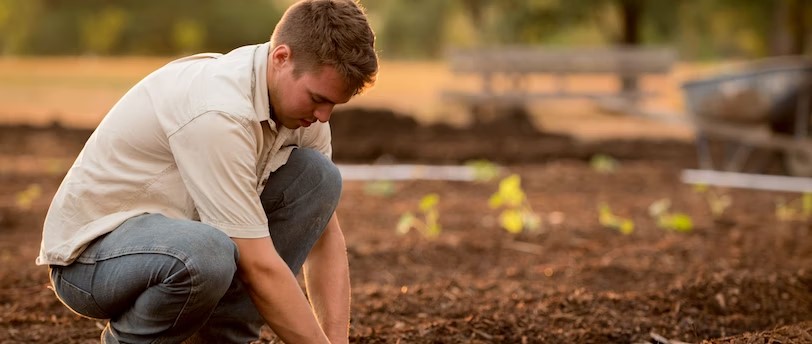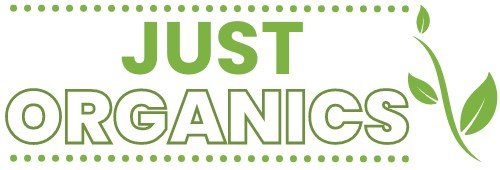Are you curious about whether having your own organic garden is worth it? Well, let me tell you, it absolutely is! Having your own organic garden gives you complete control over the quality of the food you consume. You can ensure that no harmful pesticides or chemicals are used in the growing process, resulting in healthier and safer produce for you and your loved ones.
Not only does having an organic garden hold many benefits for your health, but it also has positive environmental impacts. Organic gardening practices promote biodiversity and protect the soil from erosion. By avoiding synthetic fertilizers and pesticides, you contribute to a cleaner environment free from harmful substances. Plus, growing your own food reduces carbon emissions associated with long-distance transportation and packaging involved in store-bought produce.
In addition to these benefits, having an organic garden can save you money in the long run. While there may be some initial costs involved in setting up your garden, such as purchasing seeds or tools, the ongoing expenses are significantly lower compared to buying organic goods regularly. With just a little time and effort invested into nurturing your plants, you can enjoy an abundance of fresh vegetables and fruits without breaking the bank.
Furthermore, consuming organically grown food provides numerous health advantages. Organic produce tends to have higher nutrient levels than conventionally grown counterparts, making it more beneficial for your overall well-being. Additionally, by avoiding exposure to synthetic pesticides and herbicides commonly found on non-organic crops, you reduce potential health risks associated with these chemicals.
However, before embarking on this rewarding journey of having an organic garden of your own, there are a few considerations and challenges to keep in mind. It requires dedication and regular care to maintain a thriving garden. Factors like weather conditions and pests may pose challenges along the way. But with proper planning and knowledge about organic gardening techniques like companion planting or natural pest control methods, these obstacles can be overcome successfully.
So now that you know all about the advantages of having your own organic garden, it’s time to roll up your sleeves and start planting! Get ready to enjoy the taste of fresh, nutritious produce while making a positive impact on your health, the environment, and your wallet.
Key Takeaways
- Eating organic has positive effects on health and well-being.
- Choosing organic reduces exposure to harmful substances and promotes a healthier lifestyle.
- Organic produce is higher in nutrients like vitamin C, antioxidants, iron, and zinc.
- Starting an organic garden requires planning and preparation.
Table of Contents

Control Over Your Food Quality
Having your own organic garden gives you complete control over the quality of the food you eat, ensuring that you and your loved ones consume nothing but the freshest and healthiest ingredients. When you grow your own food in an organic vegetable garden, you have the power to choose what goes into the soil and onto your plants. By avoiding synthetic pesticides, herbicides, and fertilizers commonly used in conventional farming, you can enjoy produce that is grown organically and is free from harmful chemicals.
In an organic garden, you have control over every step of the growing process. You can carefully select high-quality seeds or seedlings to start with, ensuring that they are free from genetically modified organisms (GMOs) or other undesirable traits. You can also choose natural methods for pest control and weed management, such as companion planting or using homemade organic sprays made from ingredients like garlic or neem oil.
Furthermore, having an organic garden allows you to harvest your produce at its peak freshness. Instead of relying on grocery stores where fruits and vegetables may have been picked weeks ago and travelled long distances before reaching your plate, growing your own food means picking it straight from the garden when it’s perfectly ripe. This guarantees optimal flavour and nutritional value since freshly harvested produce retains more vitamins and minerals compared to store-bought options.
Having your own organic garden provides numerous benefits beyond just saving money on groceries. It allows you to grow your own food while maintaining full control over its quality. With an emphasis on natural cultivation methods and avoiding harmful chemicals commonly found in conventional farming practices, an organic vegetable garden ensures that you consume only fresh and healthy produce that supports overall well-being for both yourself and your loved ones.
Environmental Benefits of Organic Gardening
By cultivating an organic garden, you can contribute to the preservation of the environment and make a positive impact on the planet. Organic gardening focuses on using natural methods and materials to grow plants, without relying on synthetic chemicals or genetically modified organisms. One of the key environmental benefits of organic gardening is the promotion of healthy soil through the use of organic matter and compost. Organic matter, such as decomposed plant material and animal manure, improves soil structure, retains moisture, and provides essential nutrients for plants to grow.
In addition to improving soil health, organic gardening also helps reduce pollution in our waterways. Unlike conventional farming practices that rely heavily on chemical fertilizers, organic gardens utilize natural sources of nutrients like compost and organic fertilizers. These substances release nutrients slowly over time, preventing excess runoff into rivers and streams that can lead to water pollution. By minimizing the use of synthetic chemicals in your garden, you are actively protecting aquatic ecosystems and ensuring clean water for future generations.
Furthermore, another significant benefit of organic gardening is its focus on pest control methods that are safe for both humans and wildlife. Instead of relying on toxic pesticides that can harm beneficial insects like bees and butterflies or contaminate food crops, organic gardeners employ techniques such as companion planting (where certain plants naturally repel pests), crop rotation (to disrupt pest life cycles), and biological controls (introducing predators or parasites that feed on pests). These methods provide effective pest management while maintaining a balanced ecosystem in your garden.
Having your own organic garden not only allows you to grow healthy food but also has numerous environmental benefits. By enriching your soil with organic matter and composting waste materials instead of sending them to landfills, you contribute to sustainable agriculture practices that promote healthy ecosystems. Additionally, by avoiding synthetic chemicals in favour of natural alternatives for fertilization and pest control, you help protect water quality while safeguarding beneficial insects. So why not start your own organic garden today and be a part of the solution for a greener, healthier planet?
Cost Savings and Economic Benefits
When you cultivate an organic garden, you can enjoy significant cost savings and reap economic benefits. Growing your own organic vegetables and fruit not only provides you with fresh and healthy produce but also saves you money in the long run. One of the main advantages of having your own organic garden is that it eliminates the need to purchase expensive organic produce from grocery stores or farmers’ markets. By growing your own, you can avoid the higher prices associated with organic food and instead invest your time and effort into nurturing your plants.
Furthermore, having an organic garden allows you to control the quality of the soil, water, and nutrients used in cultivation. This means that you don’t have to rely on potentially harmful pesticides or chemical fertilizers found in conventionally grown produce. By avoiding these costly inputs, you not only save money but also contribute to a healthier environment by reducing pollution and protecting beneficial insects and wildlife.
In addition to cost savings, there are various economic benefits associated with maintaining your own organic garden. For instance, if your garden yields a surplus of fruits or vegetables, you can consider selling them at local farmer’s markets or directly to neighbours and friends. This could provide an extra source of income while helping others access fresh and locally grown produce.
Overall, growing your own organic vegetables and fruit offers both immediate cost savings as well as long-term economic benefits. Not only do you save money on groceries by eliminating the need for store-bought organic produce, but you also have the potential to generate additional income by selling any surplus harvests. Furthermore, by cultivating an organic garden, you contribute towards a sustainable lifestyle by reducing reliance on harmful chemicals while enjoying delicious homegrown food straight from your backyard.
Health Benefits of Eating Organic
Indulge in the vibrant flavours and nourishing goodness of organic fruits and vegetables, reaping the health benefits of a diet rich in pesticide-free, nutrient-dense produce. Eating organic can have numerous positive effects on your overall health and well-being. Organic foods are grown without the use of synthetic pesticides, herbicides, and genetically modified organisms (GMOs), which have been linked to various health issues. By choosing organic, you can reduce your exposure to these harmful substances and enjoy a healthier lifestyle.
The health benefits of eating organic go beyond just avoiding toxins. Organic produce tends to be higher in certain nutrients compared to conventionally grown counterparts. Studies have shown that organically grown fruits and vegetables contain higher levels of vitamin C, antioxidants, and minerals such as iron and zinc. These nutrients play crucial roles in supporting our immune system, promoting healthy digestion, and protecting against chronic diseases like heart disease and cancer.
In addition to being more nutrient-dense, organic foods are also free from artificial additives such as preservatives and flavours. This means that when you consume organic products, you are getting pure, unadulterated food that is closer to its natural state. The absence of these additives can benefit individuals with sensitivities or allergies to certain chemicals commonly found in processed foods. By opting for organic options, you can nourish your body with wholesome ingredients that contribute to your overall well-being.
Incorporating organic fruits and vegetables into your diet can provide numerous health benefits. From reducing exposure to harmful pesticides to enjoying higher levels of essential nutrients, choosing organic is a step towards improving your overall wellness. So why not take advantage of the vibrant flavours and nourishing goodness offered by an organic garden? Your body will thank you for it!
Considerations and Challenges of Starting an Organic Garden
Get ready to embark on an exciting journey of cultivating your own organic garden and experience the joys of connecting with nature while reaping the bountiful rewards it has to offer. However, before you dive into this endeavour, there are a few considerations and challenges that you should be aware of. Starting an organic garden requires careful planning and preparation, but the benefits far outweigh the initial hurdles.
One important consideration when starting an organic garden is choosing the right location for your garden beds. You’ll need to find a spot that receives ample sunlight throughout the day, as most vegetables and herbs require at least 6 hours of direct sunlight. Additionally, make sure the soil in your chosen area is fertile and well-draining. Conducting a soil test can help you determine if any amendments are needed to create an optimal growing environment for your plants.
Another challenge you may face is companion planting. This technique involves strategically planting certain crops together to maximize their growth potential while deterring pests. For example, planting marigolds alongside tomatoes can help repel harmful insects like aphids and nematodes. Learning about companion planting will not only benefit your plants but also promote biodiversity in your garden.
Lastly, one of the biggest challenges of starting an organic garden is dealing with pests naturally. Without using chemical pesticides, you’ll need to explore alternative methods such as introducing beneficial insects or using homemade pest repellents made from natural ingredients like garlic or neem oil. It may take some trial and error to find what works best for your specific situation, but persevering through these challenges will result in healthier plants and a more sustainable approach to gardening.
By considering these factors and embracing these challenges head-on, you will be well-prepared to start your own organic garden successfully. Remember that patience is key as gardening takes time and effort before yielding fruitful results. With dedication and knowledge about organic gardening practices such as proper bed location, companion planting techniques, and natural pest control methods, you’ll be on your way to enjoying the fresh taste of homegrown plants while contributing to a healthier planet.
Frequently Asked Questions
How much time does it typically take to maintain an organic garden?
Maintaining an organic garden usually requires a minimum of 1-2 hours per week. Tasks include watering, weeding, fertilizing, and pest control. However, the time commitment will vary depending on the size and complexity of your garden.
Can I grow all types of fruits and vegetables in an organic garden?
Yes, you can grow a wide variety of fruits and vegetables when you garden organically. By using natural fertilizers and avoiding pesticides, you can ensure that your produce is healthy, nutritious, and free from harmful chemicals.
What are some common pests and diseases that organic gardeners face, and how can they be managed without using chemicals?
Some common pests and diseases that organic gardeners face include aphids, slugs, and powdery mildew. These can be managed without using chemicals by using companion planting, attracting beneficial insects, and practising good garden hygiene.
Are there any specific soil requirements for growing organic produce?
For growing organic produce, it is crucial to have nutrient-rich soil. Organic gardeners often use compost or well-rotted manure to enhance soil fertility. Regularly testing the soil’s pH levels and ensuring proper drainage are also important factors for successful organic gardening.
What are some tips for maximizing the yield and productivity of an organic garden?
To maximize the yield and productivity of your organic garden, start by choosing the right location with ample sunlight. Use compost to enrich the soil, rotate crops to prevent disease, and practice proper watering and pruning techniques. Regularly monitor for pests and diseases and take necessary measures to control them naturally.
Conclusion
In conclusion, having your own organic garden is definitely worth it. Not only does it give you control over the quality of your food, but it also provides numerous environmental benefits. By growing your own produce without the use of harmful chemicals and pesticides, you are contributing to a healthier ecosystem and reducing pollution.
Additionally, having an organic garden can lead to cost savings and economic benefits. You will no longer have to rely on purchasing expensive organic produce from grocery stores, as you can simply harvest fresh fruits and vegetables from your backyard. This not only saves money in the long run but also reduces dependence on mass-produced foods that may be lacking in nutritional value.
Furthermore, eating organic has undeniable health benefits. Organic foods are free from synthetic additives and genetically modified organisms (GMOs), making them a healthier choice for you and your family. They contain higher levels of essential nutrients such as vitamins, minerals, and antioxidants, which contribute to better overall health and well-being.
However, it is important to consider the considerations and challenges that come with starting an organic garden. It requires time, effort, and knowledge about proper gardening techniques. You will need to invest in quality soil, seeds or seedlings, tools, and possibly even a greenhouse or raised beds depending on your space limitations.
Overall though, the benefits outweigh the challenges when it comes to having your own organic garden. The satisfaction of growing your own food while knowing exactly what goes into it is unmatched. Not only will you have access to fresh and nutritious produce year-round but you will also be making a positive impact on both your health and the environment. So why wait? Start planning your organic garden today!

